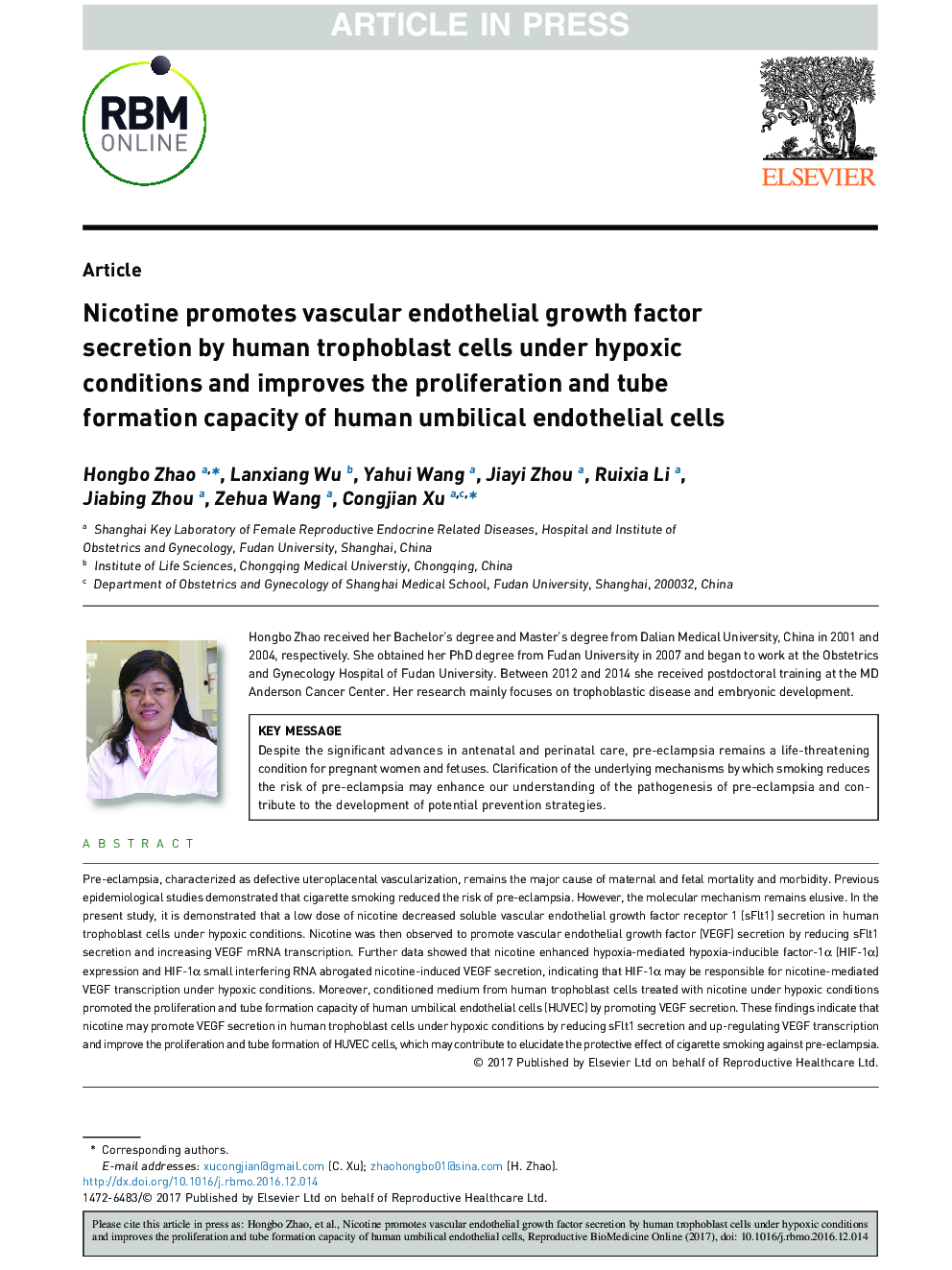| Article ID | Journal | Published Year | Pages | File Type |
|---|---|---|---|---|
| 5696734 | Reproductive BioMedicine Online | 2017 | 8 Pages |
Abstract
Pre-eclampsia, characterized as defective uteroplacental vascularization, remains the major cause of maternal and fetal mortality and morbidity. Previous epidemiological studies demonstrated that cigarette smoking reduced the risk of pre-eclampsia. However, the molecular mechanism remains elusive. In the present study, it is demonstrated that a low dose of nicotine decreased soluble vascular endothelial growth factor receptor 1 (sFlt1) secretion in human trophoblast cells under hypoxic conditions. Nicotine was then observed to promote vascular endothelial growth factor (VEGF) secretion by reducing sFlt1 secretion and increasing VEGF mRNA transcription. Further data showed that nicotine enhanced hypoxia-mediated hypoxia-inducible factor-1α (HIF-1α) expression and HIF-1α small interfering RNA abrogated nicotine-induced VEGF secretion, indicating that HIF-1α may be responsible for nicotine-mediated VEGF transcription under hypoxic conditions. Moreover, conditioned medium from human trophoblast cells treated with nicotine under hypoxic conditions promoted the proliferation and tube formation capacity of human umbilical endothelial cells (HUVEC) by promoting VEGF secretion. These findings indicate that nicotine may promote VEGF secretion in human trophoblast cells under hypoxic conditions by reducing sFlt1 secretion and up-regulating VEGF transcription and improve the proliferation and tube formation of HUVEC cells, which may contribute to elucidate the protective effect of cigarette smoking against pre-eclampsia.
Related Topics
Health Sciences
Medicine and Dentistry
Obstetrics, Gynecology and Women's Health
Authors
Hongbo Zhao, Lanxiang Wu, Yahui Wang, Jiayi Zhou, Ruixia Li, Jiabing Zhou, Zehua Wang, Congjian Xu,
